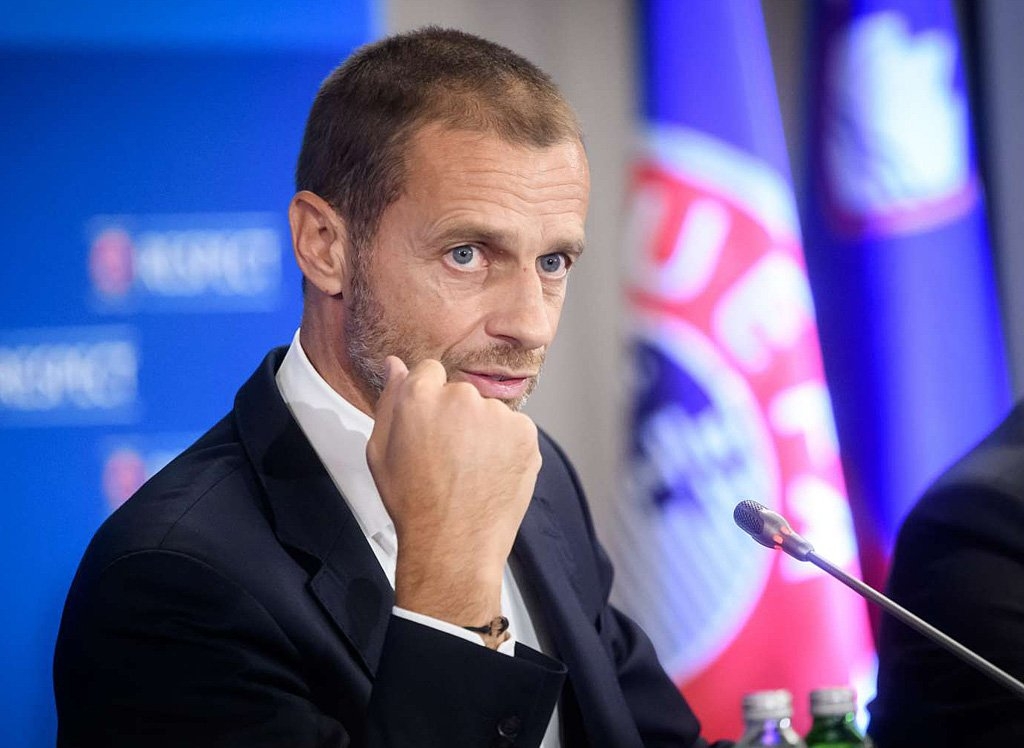Several foreign media blame UEFA for the emergence of coronavirus in Italy. Magazine Independent thus follows the story of a Champions League match that triggered an Italian coronavirus crisis, named simply the biological bomb. Could Aleksander Ceferin, President of UEFA, prevented a disaster in Bergamo?
The football world knows Kike Mateu as a football player at CAP Ciudad de Murcia and a sports journalist, but in the last month he has become famous for a completely different reason. In Spain, Valencia he is considered to be the so-called “patient zero”, that means, the first recorded case of a coronavirus in the area. Mateu travelled to Milan in February, followed by a match at San Siro in Milan on February 19. And many believe that this match of the eighth Champions League, between Atalanta and Valencia was fatal for Italy. Even Bergamo Mayor, Giorgio Gori, acknowledged that: “This match was a biological bomb that exploded in the stadium and is now killing our city.” Gori is convinced that sports fans have transmitted the virus from one to the other while celebrating their team’s victory. Tears of happiness were flowing, sweaty fans were hugging, joy was at its height – but the coronavirus transmission was at its height too. “It was inevitable,” the mayor is convinced.
“UEFA puts their own interests on the first place”
This match also featured Mateu, who was moving freely between players and journalists and then returned to Valencia. After a few days he got his first coronavirus symptoms, the test was also positive. Nobody knows how many people got infected with the coronavirus right in this football match, but it is certain, that Bergamo then has become the epicentre of the coronavirus in northern Italy. The question also arises, as to whether UEFA really had to preformed this match and why its president, Aleksander Ceferin, did not ban it. Even “patient zero” Mateu is convinced, that this game should never be played and he pointed for this directly at UEFA’s responsibility: “UEFA was already aware of the seriousness of the problem and that the coronavirus was spreading precisely in northern Italy. Bergamo was a known endangered area and, at that time, we detected also a serious coronavirus situation in Spain as well. UEFA put’s their own interests first, ahead of the healthy ones. They put the match in front of the people.”
UEFA has no problem cancelling matches in front of the stands for safety; pandemic was not a big enough danger?!
That UEFA did not cancel this match is not only surprising to the health professionals and the residents there, but also to the many football followers. UEFA has forbidden playing football matches in front of the stands, as long as incidents between fans are announced. So they had to play Dinamo in Zagreb in front of the empty stands and also on several occasions, because of UEFA’s ban, team Crvena Zvezda had to play in front of the empty stands. UEFA explained such decisions with a security question. However, the coronavirus pandemic is obviously not a big enough threat for UEFA…
The football match in Bergamo, Italy, is not the only one after which the number of coronavirus infected has literally exploded. A similar situation was witnessed after the Liverpool – Atletico Madrid match. Within a few days of the match, which took place in the first half of March 2020 and could also be cancelled by UEFA, only 14 cases of Covid-19 virus infections in Liverpool were recorded, but less than two weeks later, 309 were listed infected. Liverpool’s director of public health Matthew Ashton is also convinced, that the number of people infected in Liverpool is increasing precisely because of this match, reports the magazine Independent. The match was played on March 11, 2020, when the World Health Organization (WHO) declared a pandemic.
The pandemic was therefore declared on March 11, 2020, but a day later, on March 12, president Ceferin allowed two more UEFA matches to be played, according to their website. Other matches were then played in front of the empty stands, but not because of UEFA’s instructions, but because the countries had chosen to do so.
Obviously, UEFA was aware of the gravity of the situation, but in one of the most profitable sports in the world, they put earnings ahead of their people. Having said that, the question is not, whether those responsible will answer for their part of the blame, but when.
